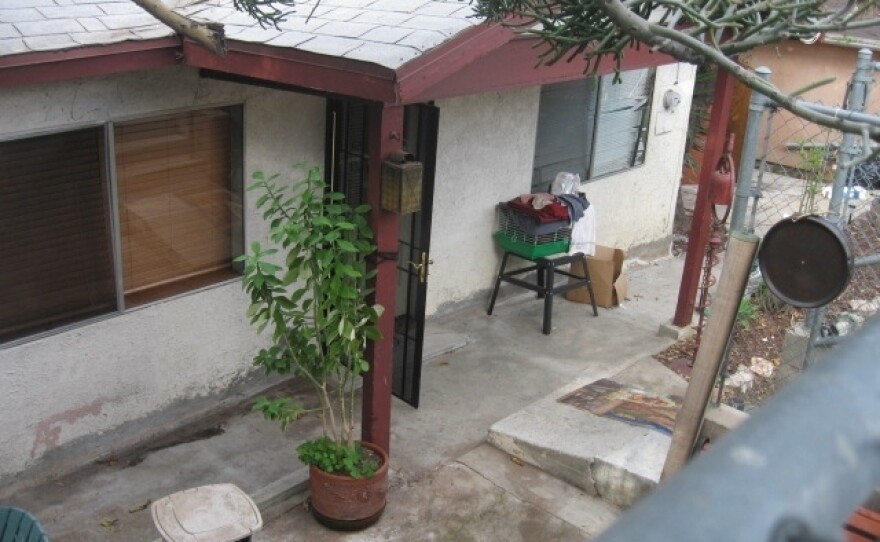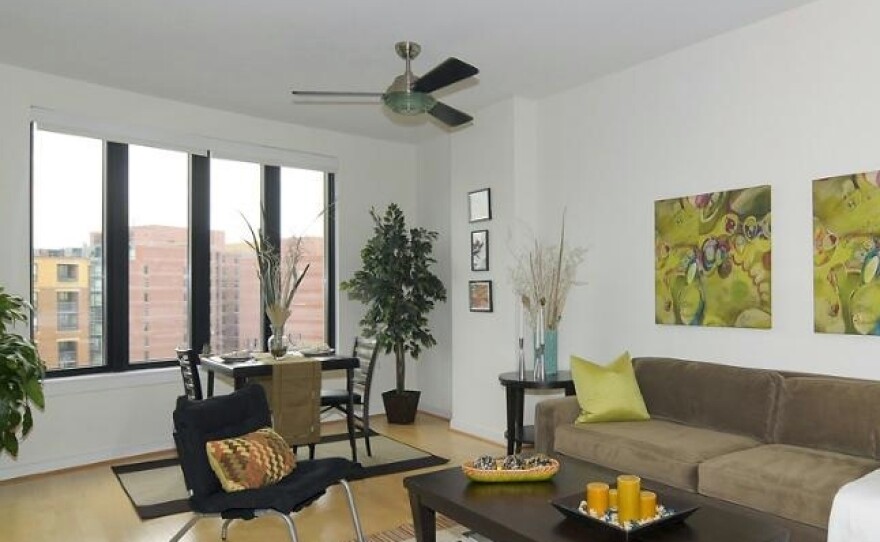The housing market may be getting more attractive for buying a home. Foreclosures continue to rise, but prices are stabilizing in some places across the country. Just as communities experienced the housing bubble differently, they are also feeling varying degrees of recovery.
Charlotte: 'Two Chandeliers In The Dining Room'
In Charlotte, N.C., a foreclosed McMansion is going for half of its 2007 value. Lee Brown, a Realtor in the area, says Charlotte has a community of "starter castles" that were built at the height of the housing boom. They have "really ornate exteriors" with French, German and Swiss influence "all tossed into the same house," she says.
During the boom, she says, many people moved to Charlotte for high-paying jobs in the banking industry, but lost them when banks shut down after the crash.
One of the foreclosure properties sold for $1.27 million in 2007; Brown expects it to now sell for about $650,000.

During the housing boom, homes like this in the City Terrace neighborhood of East Los Angeles were selling for $250,000 to $500,000. These days many of those same properties are going for a little over $100,000.
East L.A.: 'Starting From Scratch'
In East Los Angeles, Realtor Felipe Acuna works in a once-glamorous neighborhood that is trying to make a comeback.
"City Terrace is ghetto fabulous. Investors are coming in and taking these properties that are not financeable because of the conditions that they are, and they're improving them dramatically," he says.
In 2004 investors began snatching up City Terrace properties left and right. Houses in awful condition sold for up to $500,000. Today many of those same homes go for just over $100,000, and efforts to gentrify the neighborhood are starting from scratch.
"The house on Ramboz Place was built I believe in the '30s. You weren't in the city. This was like the edge of the world here, but it was beautiful," Acuna says. "But unfortunately they're not as beautiful as they were back then. You have the freeway you can look at now and count the cars if you wanted."

This Washington, D.C., condo on Massachusetts Avenue is listed for about $500,000. The real estate market in D.C. never cooled off that much.
"Even though you were like a gardener or a housekeeper and suddenly you were able to buy a half-million-dollar home that two, three years earlier was only worth $250,000," he says. "Unfortunately I tell people I probably could have increased my business two- to threefold if I would have took in those people and put them into something they couldn't afford and not worry about it, but I like to sleep at night."
D.C.: Subdued Bidding Wars
In Washington, D.C., things never cooled off that much. The district is considered recession-proof because of the high concentration of government jobs. In some neighborhoods, the market for starter homes is beginning to look a little like the boom period between 2005 and 2007.
During that time, there were bidding wars, says Valerie Blake, an associate broker with Prudential Carruthers Realtors. One war for a fixer-upper property raised the price to $435,000 from its listing price of $220,000. There were 28 bidders.
"In 2011, we're seeing a lot of first-time buyers re-entering the market. Bidding wars have once again returned; they're just not as frenzied as they once were," she says. "You might have two or three people bidding instead of 25. You might have an increase of $10- or $15,000, rather than hundreds of thousands. But they have to be perfect in this market. You cannot just throw anything out there ... and expect that there will be people lined up at the door."
Copyright 2022 NPR. To see more, visit https://www.npr.org. 9(MDAzMjM2NDYzMDEyMzc1Njk5NjAxNzY3OQ001))






